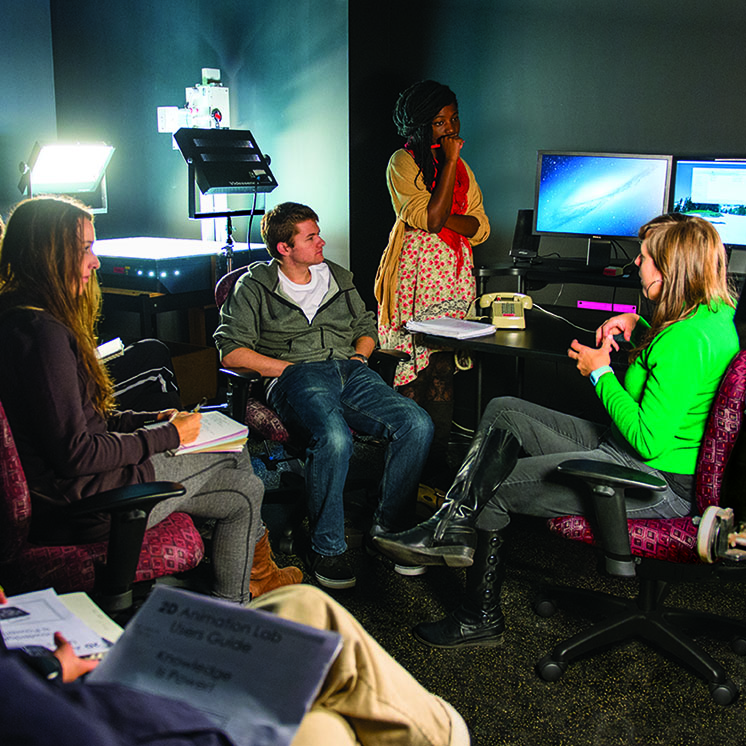Visualizing Microbial Seascapes: An Introduction to Animation and Marine Biology
REVISED
Fall 2015 and Winter 2016 quarters
Taught by


This program will examine marine environments and life from the perspectives of science and the visual and media arts, emphasizing animation. Marine life constitutes a majority of the biomass and diversity of life, and marine microorganisms play major, complex roles in global ecological processes. We will focus on these relationships and how human activity affects them. In the past century, humans have severely impacted Earth’s ecosystems, degrading habitats and over-exploiting natural resources. Some scientists have termed this period of human influence the Anthropocene. We will explore ways that science and art can increase understanding of natural phenomena and human impacts on them, contributing effectively to solving environmental problems. We will learn how artists and marine scientists use close observation, analysis, and integrative thinking to communicate important concepts and values. We will experiment with ways to represent the movements, behaviors, and functions of microorganisms, as well as the larger structures of marine environments. Artists routinely base their works on scientific findings; students will practice such research-based creative strategies to respond to and represent marine phenomena in their drawings and animation.
Students will explore how marine sciences and visual arts inform each other. Lectures will present concepts and terms unique to each discipline and include creative works about and inspired by the natural world. Labs, workshops, and field trips will offer experience in marine environments and conceptual and technical skills with which to represent them in drawing and animation. Through readings, writing assignments, and seminar discussions, students will learn how scientists and artists can contribute to understanding complex natural phenomena, raising awareness of and mitigating environmental problems. Students will integrate their learning in polished thematic creative works.
In fall quarter, we examine ecosystems such as estuaries, intertidal zones, and the deep sea, taking an ecological perspective and emphasizing the role of microorganisms in these habitats. Students will learn drawing and animation skills as they explore how to represent microorganisms and their activities in small- and large-scale environments. In winter, we shift focus to the diversity of marine life and how organisms have adapted to environmental changes. Students will pursue more ambitious approaches to creative representations of marine life, environments, and the challenges they face. A multi-day field trip to the Friday Harbor Marine Labs will provide hands-on experience and inspiration for students' creative projects. Both quarters, we will join with other programs in common activities focused on issues related to the Anthropocene.
Program Details
Fields of Study
Preparatory for studies or careers in
Academic Website
Location and Schedule
Campus location
Olympia
Schedule
Offered during: Day
Advertised schedule: First winter class meeting: Monday, January 4 at 10am (Sem II B1105)
Books
Online Learning
Required Fees
Revisions
| Date | Revision |
|---|---|
| November 24th, 2015 | This program will accept new winter enrollment with signature. |
| July 29th, 2015 | Fall fees have been cancelled. |
 my.evergreen.edu
my.evergreen.edu

 Fall
Fall  Winter
Winter